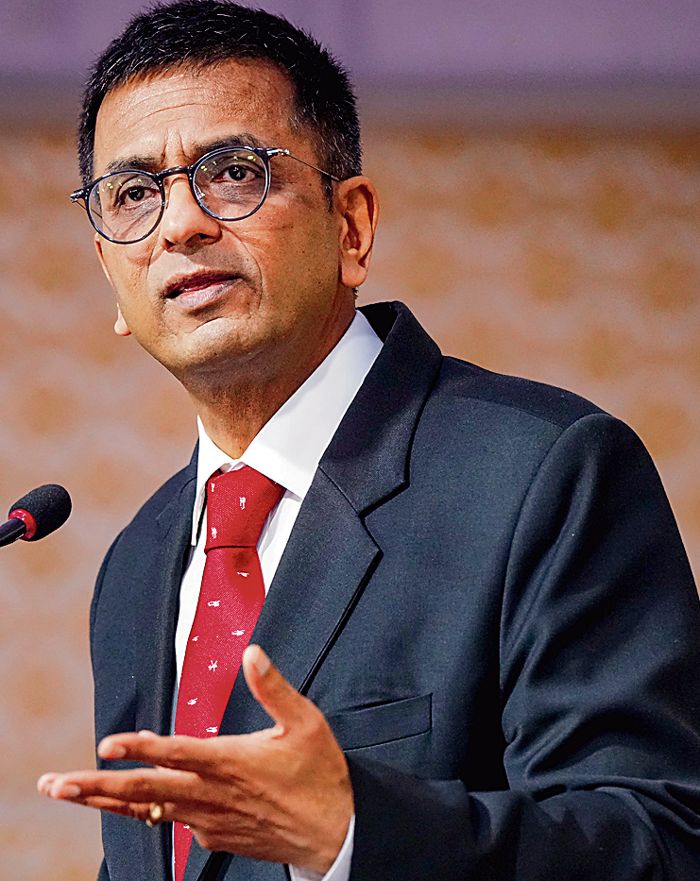
New Delhi, January 1
More than four years after the historic Ayodhya verdict of the Supreme Court (SC), Chief Justice of India DY Chandrachud on Monday said the five judges, who ruled in favour of construction of a Ram temple by a Trust at the disputed site, had unanimously decided there will be no authorship ascribed to the judgment.
On November 9, 2019, settling a fractious issue that went back more than a century, a five-judge Bench headed by the then CJI Ranjan Gogoi had paved the way for the construction of the temple and ruled that an alternative five-acre plot would be found for a mosque in the holy town in Uttar Pradesh.
In an interview, Chandrachud, who was part of the Constitution Bench, candidly spoke on the issue of anonymity and said when the judges sat together, as they do before a pronouncement, it was unanimously decided that it would be a “judgment of the court”. He was replying to the query as to why the name of the author judge was not made public. “When the five-judge Bench sat to deliberate on the judgment, as we all do before a judgment is pronounced, we all decided unanimously that this would be a judgment of the court. And, therefore, there was no authorship ascribed to any individual judge,” the CJI said.
“The case has a long history of conflict and diverse viewpoints based on the history of the nation, and all those who were part of the Bench decided that this will be a judgment of the court. The court will speak through one voice and the idea of doing so was to send a clear message that all of us stand together not only in the ultimate outcome but in the reasons indicated in the judgment,” he said, adding, “I will close my answer with that.” Delivering a unanimous verdict on the case that long polarised the country and frayed the secular tapestry of Indian society, the apex court Bench had said in 2019 that the faith of Hindus that Lord Ram was born at the site was undisputed, and He was symbolically the owner of the land. — PTI
Says order on Article 370 according to law
“We decide according to the Constitution and the law. I don’t think it will be appropriate for me either to respond to the criticism or mount a defence to my judgment. What we have said in my judgment is reflected in the reason present in the signed verdict and I must leave it at that.”
Same-sex marriage ruling: Outcome never personal
Reflecting on the unsuccessful fate of the pleas for legal sanction to same-sex marriage before the Supreme Court, the CJI said the outcome of a case was never personal to a judge and he had no regrets. He acknowledged that queer couples fought a “long and hard battle” for the realisation of their rights, but “judges do not associate themselves with a cause, and having decided the case now, I leave it for the future of our society to judge which course to take”.
